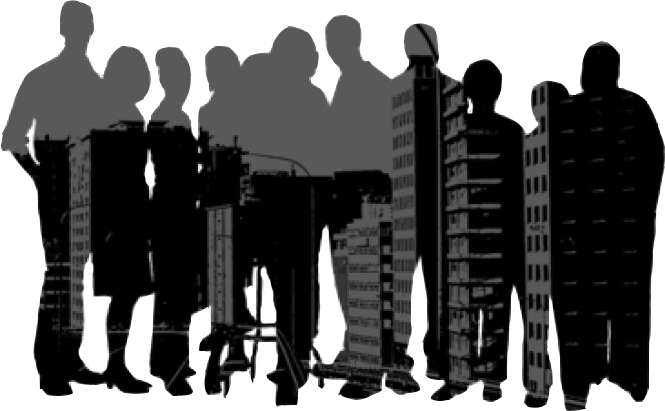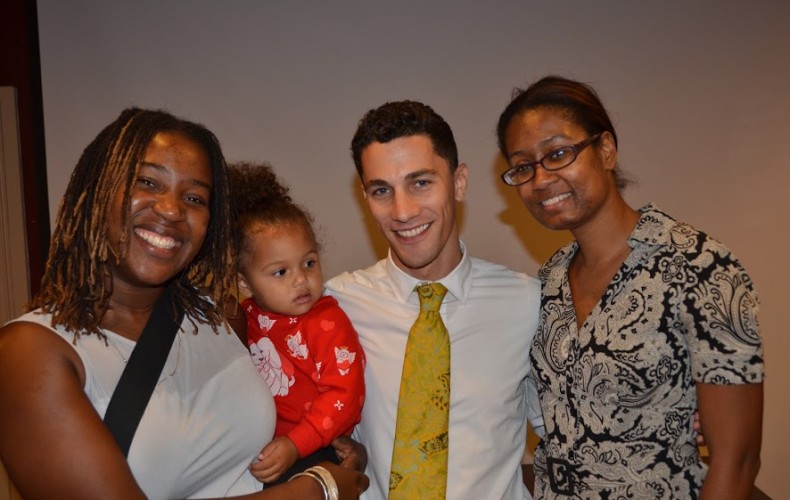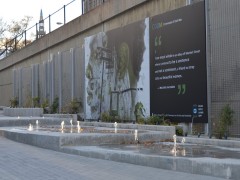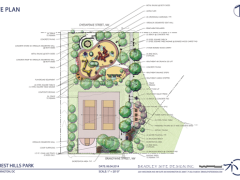Who is involved in urban fellowships?
“SC2 gave me the chance to return home and join those near and dear to me, my friends and family, in a struggle to right the ship.” -Christopher Dorle, SC2 Fellow in Detroit.
“Working in the New Orleans Health Department was my first experience working in government and it was both challenging and beneficial….Working in government also gave me my first taste of navigating the bureaucracy of a public agency’s procurement process and civil service procedures. The experience might leave some people disheartened, but it left me confident that the sometimes-frustrating elements of local government are not permanently broken. They can be tweaked, fixed, or overhauled to serve everyone better.” -Maxwell CIardullo, SC2 Fellow in New Orleans.
“The eye opener may have been my openness to her ideas and the cross pollination she helped create with other organizations. Our fellow has become an excellent emissary for our organization.” –Guy Williams, Executive Director, Detroiters Working for Environmental Justice
Whatever their specific interests and expertise, people who serve as urban fellows are passionate about cities, intensely curious, and willing to risk and learn. The urban fellowship experience is paradoxical: sometimes supremely isolating, other times intensely social. Such an experience calls for people who adapt well, work independently, forge their own paths, and yet also seek and inspire connection and collaboration.
Urban fellowship programs must start from strong framework of support and sponsorship. The four programs we examined all benefited from the combined support of private foundations, universities, and the federal government. The evaluators for the Strong Cities, Strong Communities program found that “urban fellows directly affiliated with federal place-based initiatives garner special credibility that can support their own project work and further the overall goals of federal and local government place-based urban policies and initiatives—it opens doors that non-federal fellowship placements may not.” Similarly, the support of foundations, both regional and national “played critical supporting roles in several of the SC2 fellowship placements and more generally in urban fellowships; and the principles of place-based urban policy interventions often aligns with their longstanding efforts to support place-based strategies that further the goals of “equitable” economic revitalization and community development” (Strong Cities, Strong Communities Fellowship Placement Program: Final Evaluation Report (Washington, DC: German Marshall Fund, April 2015), 4. Report available here.
Common roles and relationships include
Hosts: Organizations, employers, and government agencies. Hosts should have clear roles and clarity about the contrctor status of their fellows. They should put a clear chain of reporting in place and be explicit about the fellows’ decision making and budgetary powers. Hosts should make sure to prepare an orientation experience for fellows, particularly for those who have relocated, but even for fellows who are longtime residents of the city.
Host organizations can be inside or outside government, for-profit or nonprofit. At private employers, fellows have gained a glimpse into the interactons and respective roles of the private sector with government and residents of the city. Within government agencies, fellows have gained insight into–and become strong allies for–the dedication of many city employees:
“The busy bees that make the City organ thrive, city workers, are often the first to be offered up in budget cuts….Despite this, they work tirelessly…and in their spare time are the activists, volunteers, and civic leaders that are fighting the avalanche-like decline of the place they call home.” – Dekonti Mends-Cole, SC2 Fellow in Detroit.
Liaisons and contacts: Within and beyond the host organization, fellows must have access to people who can get things done and show them the ropes, be that high-level executives in an organization or agency, or a longtime city resident and community activist who knows just about everyone. These contacts are critical to empowering fellows to see and act on the opportunities and challenges to their host city.
Mentors: Fellows gain insight, skills, and advice for troubleshooting problems from senior professionals and peers who are the “go-to” people, whether locally or with a national perspective. One of the findings from the symposium was that peer contact is a vital kind of mentoring, and currently there are not enough opportunities for fellows to mentor one another across cohorts, time, and regional networks. A strengthened approach to engaging previous fellows in mentoring, for example, was called for. Also considered crucial: periodic regional meetings where face-to-face exchanges can happen, with specialized training and leadership development available to all.
Coaches: Similar to mentoring, but more focused on acquiring and honing specific skills, coaches are a valuable asset to a fellowship program.
Fellows (Cohort): Current and previous fellows can be part of a service cohort in terms of time, a regional cohort in terms of location, an institutional cohort in terms of discipline or focus of work, or a program cohort in terms of the specific program sponsoring them. Their relationships are especially important for recruiting, peer learning, and mentoring.
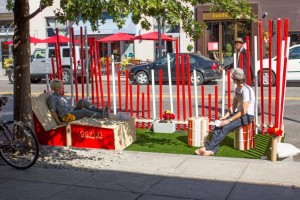
Now with the DC Department of Transportation, former Capital City Fellow Ted VanHouten continues the District’s work re-thinking potential uses of public space. On ParkingDay in Washington, DC, the District allows residents and businesses to convert metered on-street parking spaces into temporary parks.
We have a saying in our program: The network is everything. Although they are placed across the city, our fellows work collaboratively, often across long-standing barriers, to get things done. –Graig Donnelly, executive director of Detroit Revitalization Fellows. Read more here.
“I have built networks that span the entire country in a number disciplines with folks I may reach out to without hesitation for advice, support, and feedback. This would not have been possible without the Strong Cities Strong Communities Fellowship program.” -Bernice Butler, SC2 Fellow, Memphis.
People First / Detroit Revitalization Fellows from Iron Coast on Vimeo.
READ ON: What does success look like in an urban fellowship?
